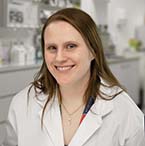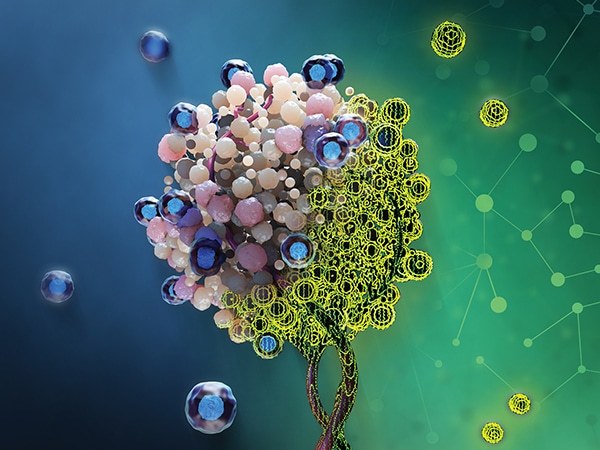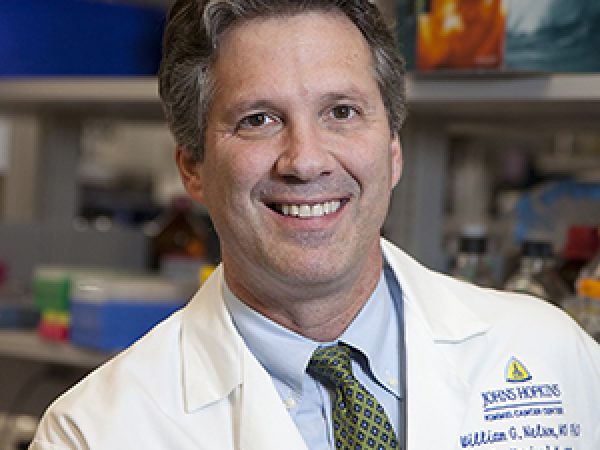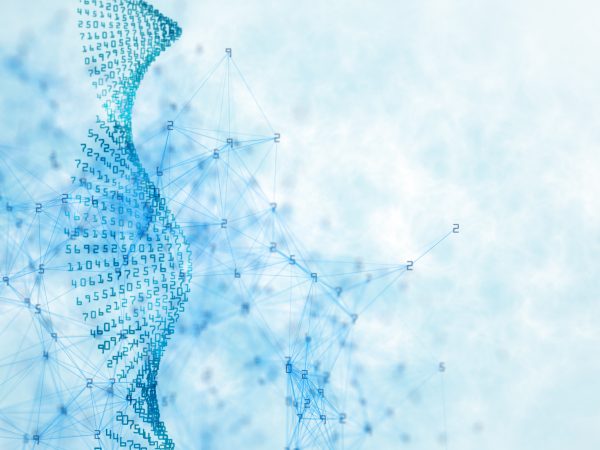Memories of Childhood Cancer Care Fuel a Researcher’s Work
Cancer researchers and cancer survivors are often viewed in separate silos. Scientists toil away alone in laboratories to decode the mechanisms of the disease and test novel molecules. Cancer survivors—both with active disease and those who are cancer-free—are the beneficiaries of those treatment advances.
But cancer researcher Vicky Forster, PhD, sees things differently. The postdoctoral research fellow, who works at the Hospital for Sick Children in Toronto, carries her experiences as a childhood cancer survivor. Forster was 7 years old when she was diagnosed with acute lymphoblastic leukemia (ALL). In honor of National Cancer Survivor Month, we are sharing her story, which appears in the summer issue of Cancer Today, published by the American Association for Cancer Research.
A Thirst for Knowledge

Forster was an inquisitive kid, and she remembers fondly the patience of a pediatric oncologist, Vaskar Saha, MD, PhD, who spent time answering each of her questions while she was undergoing treatment in England, where she grew up. It was Forster’s natural curiosity that led her to a career in science—even studying a side effect she had experienced. After being treated with methotrexate, a chemotherapy drug injected into the spinal fluid, the young Forster became completely paralyzed on the left side of her body, much to the alarm of her doctors and parents.
In the hospital, the youngster did recover movement. Still, years later as a student pursuing her doctoral degree at Newcastle University in England, she gave a talk and met a parent of another child who was treated with methotrexate and experienced the same strange symptoms. Forster decided to secure some neural cell lines to explore the effects of methotrexate and she worked with collaborators to grow healthy neural cells from stems cells. She hypothesized that methotrexate was damaging the brain’s glial cells—findings that were reported and published by another researcher, neuro-oncologist Michelle Monje, MD, PhD, and colleagues at Stanford University in California.
“It’s figured out, better than I ever could do with a year of funding at Newcastle. It’s really figured out the crux of the problem,” says Forster of Monje’s research. “She and I have had several conversations about it. It’s fantastic because her lab is pursuing ways of preventing these side effects, which could someday benefit people like me who have acute effects from methotrexate, as well as people treated with the same drug for breast cancer who have long-term cognitive effects.”
Bridging the Divide
Vicky Forster’s experiences as a scientist and a patient have led her to wear many hats. In addition to her pediatric cancer research, she also writes about science and health for general audiences, drawing on her firsthand knowledge of what it’s like to be a patient eager for more information. And in 2019, she co-founded Cancer Survivor Social Media, an organization that runs regular online events designed to foster communication and collaboration among medical professionals, researchers, patients and survivors.
Forster acknowledges that patients are included more regularly now in deliberations about research, for example, in grant selection and clinical trial design, but she says there is still a long way to go. Some researchers work well with patient advocates, she adds, but others seem to treat it as a requirement rather than an opportunity. “In some cases, unfortunately, you can end up with a very one-sided, very unfulfilling relationship for the patient advocate,” she says.
Communication is one area where there is room for improvement, says Forster. Her ability to understand medical jargon is far above the norm, so she encourages researchers to find a common language with patient contributors who might feel locked out of a project that’s only described using highly technical terminology.
“Being a cancer survivor is part of my identity,” she says. “I’m comfortable with it, and I want to use it for good. But I don’t need to sign a book deal or become wildly famous. I’d rather use my experiences to pull other people up and make sure they have a platform.”
Parts of this article were excerpted from Cancer Today. Subscriptions to Cancer Today are free to cancer patients, survivors, and caregivers.



